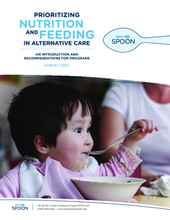Displaying 231 - 240 of 1510
The concluding chapter of Care of the State: Relationships, Kinship and the State in Children’s Homes in Late Socialist Hungary draws together the main findings of the author's research into the changing relationships and kinship ties of children who lived in state residential care in socialist Hungary.
This chapter of Care of the State: Relationships, Kinship and the State in Children’s Homes in Late Socialist Hungary explores negotiations between parents and state officials about the care of their children, showing that gendered norms of parenting and ‘appropriate’ family units were implicit parts of child protection policies in state socialist Hungary.
Care of the State blends archival, oral history, interview and ethnographic data to study the changing relationships and kinship ties of children who lived in state residential care in socialist Hungary.
The various examples in this chapter from Care of the State: Relationships, Kinship and the State in Children’s Homes in Late Socialist Hungary show that children in care continued to have relations with their parents either figuratively or actually.
This introductory chapter presents the conceptual framework for the book 'Care of the State: Relationships, Kinship and the State in Children’s Homes in Late Socialist Hungary.'
This chapter from Care of the State: Relationships, Kinship and the State in Children’s Homes in Late Socialist Hungary centres on relationships outside the family, namely to carers, teachers, villagers and peers, as well as belonging to an ethnic community.
This chapter from Care of the State: Relationships, Kinship and the State in Children’s Homes in Late Socialist Hungary looks at child protection in Hungary from the 1950s to the 1980s, arguing that the organisational structures of state welfare bolstered parent-child ties yet restricted sibling relations.
This qualitative study, conducted in four child and youth care centres in the Tshwane region of South Africa, presents some techniques used by child and youth care workers to develop belonging.
The attitudes of staff working in residential care towards trauma-informed care were measured prior to the implementation of The Sanctuary Model, an organisation-wide model and 6- months post implementation.
This paper draws upon lessons from SPOON Foundation's work in 17 countries since 2008, summarizing the main nutrition considerations for children in alternative care and offering recommendations on integrating nutrition and feeding practices into alternative care programs. This paper also explores ways that nutrition can support the global movement to ensure every child has family-based care, while meeting the immediate needs of the millions of children currently in all types of alternative care.

